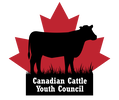|
The Food Policy committee met on August 17, 2021 during the Canadian Cattlemen's Association (CCA) semi-annual meeting. With the CCA’s semi-annual meeting taking place during the federal election, the Food Policy Committee was unable to have the Government of Canada Officials from AAFC come to speak to their current priorities around Food Policy. However, CCA staff Jennifer Babcock was able to give a brief update on current issues such as the front of package labeling on ground beef, which has had limited progression since the beginning of COVID-19 in March of 2020. With that being said, CCA is still working to ensure that ground beef is exempt from this front package warning label to ensure that it does not persuade from buying a healthy, nutritious product. Canada Beef was also present during the meeting and gave a quick update on some of the initiatives that they are running around generic beef. Their current campaign focuses on the nutritional benefits of beef, and they are working through various partnerships, social media, and traditional media convey their message. Following the Canada Beef update, the Public and Stakeholder Engagement (PSE) team gave their update on the current files that they are working on. After the positive reception of Guardians of the Grasslands, the PSE team has now turned their attention towards the impact of feedlots and how they play an important environmental role by addressing the food loss/waste issue. The PSE team is also working hard to get quality data from third-party resources on the way the general public views the cattle industry to help them shape future campaigns. Finally, CCA staff gave a quick update on what the organization has been working on since March 2021. The first food policy committee fly-in was focused on building relationships with CFIA, Health Canada, and AAFC, as there are multiple issues to be worked on with each organization. As noted earlier, the front-of-pack labeling is still a priority issue for CCA, and the decision should come post-election, and it might differ depending on the result of the election. Lastly, CFIA released a “What we Heard” document on the Simulated Meat Guideline consultation conducted last fall. Some concerns arose out of the document as the consultation respondents were skewed towards consumers that only eat plant-based proteins. CCA’s Food Policy Committee continues to work will all industry partners to monitor and respond to any food policy issues as they arise. - Evan Chaffe, YCC Ontario Delegate
0 Comments
The Domestic Agriculture Committee met during the Canadian Cattlemen's Association's (CCA) semi-annual meeting both virtually and in person in Calgary, AB on August 19, 2021. A few highlights from the meeting include:
AgriRecovery Relief Measures for Drought and Wildfires: Francesco Del Bianco and Scott Pellow from Agriculture and Agri Food Canada’s (AAFC) BRM directorate provided the committee with an update on the recent AgriRecovery initiatives for drought and wildfire conditions. AAFC has also engaged with the Department of Finance on CCA’s request to enhance the Livestock Tax Deferral. Under AgriRecovery, the government of Canada increased the total AgriRecovery funding to up to $500 million to address extraordinary costs faced by producers due to drought and wildfires. The initial funding included $100 million announced on August 6, 2021, using a 60/40 cost share basis, as outlined in the Canadian Agricultural Partnership. The Government of Alberta is adding $136 million in provincial funding. Federal contribution will be an additional $203 million for a total of $339 million. Alberta is planning to provide $94 per head payment for breeding animals, with the additional $106 payment to be made through the federal portion. The Government of Manitoba announced $62 million in provincial funding for programs being developed to assist with feed assistance, feed transportation, cattle transportation, and herd rebuilding. They are expecting $93 million in federal funding for a total of $155 million. The Government of Saskatchewan announced $119 million in provincial funding, the federal government will contribute an additional $178 million for a total of $297 million. Similar to Alberta, the program intends to provide a $200 per head payment to help maintain breeding stock. The initial payment will be $100 per head and the next payment will be later in the fiscal year after confirmation of maintained breeding stock. The Government of Ontario has announced $5 million in provincial funding for drought relief, and the federal government will contribute $7.5 million for a total amount of $12.5 million. Similar to other provinces, the program will cover costs for purchasing feed, transportation of feed and water, transportation of animals, temporary fencing and other extraordinary costs related to the drought. These estimated costs will also be approximately $200 per head of cattle. The Government of BC has announced the province and federal government are working on an AgriRecovery program to help deal with the drought and wildfire challenges. Total funds have not yet been announced. Program details are expected to be similar to the AgriRecovery Wildfire initiative in 2017-2018. Since the meeting in August, the BC Government has announced a 60/40 cost share with the federal government. $20 million has been budgeted to help ranchers with extraordinary expenses for feed, shelter, animal health and safety, and livestock transportation as a result of wildfires and drought. The committee has emphasized to AAFC that the program needs to be straightforward for producers to access the relief funds and ensure the eligibility details are applied broadly as possible to demonstrate extraordinary costs. Business Risk Management under the Next Policy Framework: Co-Chair Rob Lipsett presented CCA’s BRM priorities under the Next Policy Framework (NPF), including recommendations on Livestock Price Insurance, AgriStability, AgriRecovery, the Livestock Tax-Deferral, AgriInsurance and Advance Payments Program. AAFC Representatives spoke to the committee on business risk management considerations for the NPF from Federal Government perspective. The Young Cattlemen's Council has also been working on a submission for the NPF on behalf of our members. These submissions will be sent to the federal government in mid-September. Livestock Price Insurance: An Update was provided by Brenna Grant from Canfax Research Services of progress on the Eastern Settlement Index Project. Key takeaways are the volumes for the calf index is good, the feeder index is sufficient but could use more volumes, and it was recommended that a couple more Ontario auction markets participate in providing data before launching the product. Similar methodology is used to calculate the calf and feeder indexes and are similar to the ones used in the West. Amy Higgins of the Maritime Beef Council updated the committee that the Maritime Beef Council has received conditional approval for their federal AgriRisk application to build administrative capacity for and Eastern price insurance program. Remote Sensing Pasture Insurance Project Update: Rick McConnell provided the committee an update on the CCA’s satellite-imaging project. The project titled “Remote Sensing Applications to Insure Individual Farm Forage Production” is funded under the Canadian Agricultural Partnership’s AgriRisk Initiatives. This is an extension of the feasibility study that CCA sponsored under Growing Forward 2. The project is intended to develop mathematical algorithms to estimate forage productivity for native, tame and hay pasture at the individual farm and ranch level across Canada. CCA hopes this will lead to the creation of pasture and forage insurance programs at the individual operation level, through which producers can submit a claim if their own forages produce less than on average. Boxed Beef Price Reporting Update: CCA staff provided an update on the lack of boxed beef price reporting in Canada. Agriculture and Agri-Food Canada (AAFC) Animal Market Information Service stopped reporting box beef and by-product prices in March 2020 due to lack of participation by processors. In May 2021, a working group consisting of CCA, ACFA, NCFA, and Canfax convened to discuss challenges related to the lack of boxed beef reporting in Canada. The mandate of the group was to identify and define the specific issues and agree on targeted solutions to these issues for the Canadian industry to pursue. In June and July, CCA organized meetings with mid-sized packers to emphasize the importance of boxed beef and by-product price reporting, and advocate for their voluntary participation in the reporting. There was varying levels of interest, however, there were little to no formal commitments from the mid-sized packers to report voluntarily. The recommendation from the group was that the industry should now pursue requesting Statistics Canada to establish mandatory reporting of box beef and by product value prices. CCA staff has engaged with Statistics Canada. |
Search by typing & pressing enter




 RSS Feed
RSS Feed
